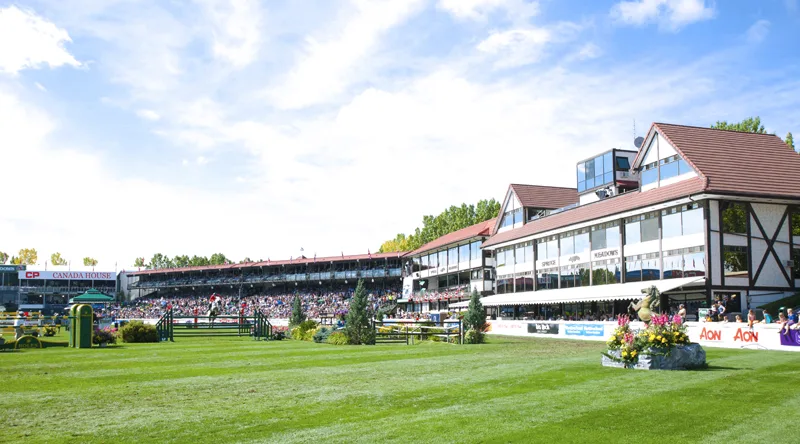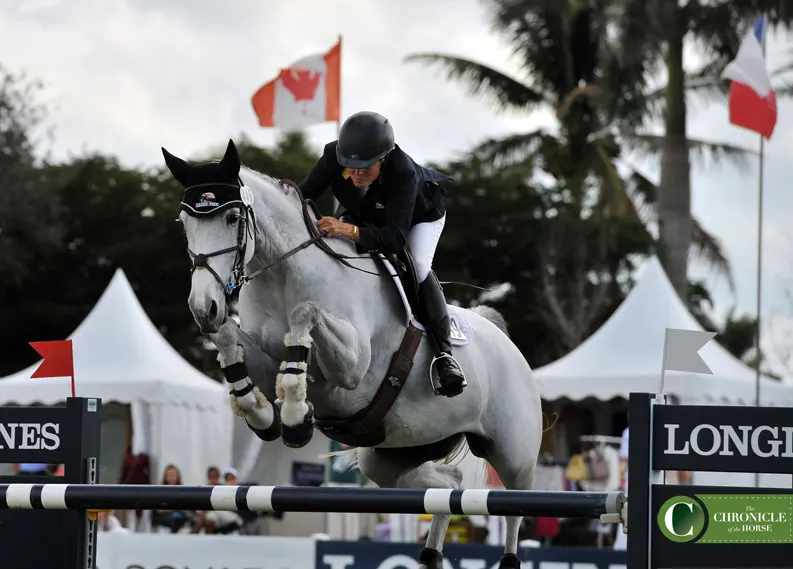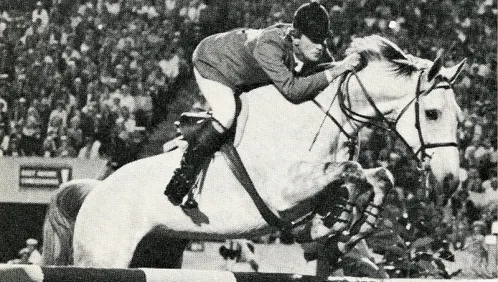For as long as we can remember, there have been heated debates about the “mileage rule” and its pluses and minuses. That debate is unlikely to abate given the current controversy, but, given what we say ought to be the main concern of the U.S. Equestrian Federation, we believe there is a relatively simple fix to the current impasse that ought to be implemented by the USEF.
The main argument in favor of the rule that we have heard is that date protection is necessary to support the time, effort and capital show managers invest in putting on shows. The argument goes that without that protection they would not invest the capital and create a market in a local area if, after they do, it could be siphoned off by predatory organizers who drain away the support from the initial mover.
Leaving aside for the moment that this rule is basically the reverse of the normal anti-trust or competition law that would strike down barriers to entry in the name of healthy competition—and there is reason to question the need for the rule at all—let’s assume for the sake of discussion that there is a role for the USEF as national governing body in the sport to use its rule-making power to foster and encourage organizers. That power ought to be used for that purpose in a fair manner.
At present, with the possible exception of Kentucky where public money is involved, the United States, with almost nine times the population of Canada, doesn’t have a privately funded facility to compare to Spruce Meadows (Alberta) or for that matter, some would say, Thunderbird (British Columbia). There may be a number of reasons for that, but probably we think the existence of the mileage rule and the way it is overseen is a major factor.

The mileage rule may be one of the things preventing people from building facilities in the USA that are comparable to Canada’s Spruce Meadows. Photo Courtesy Of Spruce Meadows Media
Who knows why private people invest hundreds of millions in the land, “bricks and mortar” to create a large horse show facility with no real prospect of a return on investment compared to what could be obtained from the investment of those funds elsewhere. But if there are people who are prepared to do it, surely it is in the interest of the USEF, and we would go so far to say part of the duty of its officers and directors, to do whatever is reasonably possible to encourage that.
So far as we are aware, the granting of dates doesn’t create a property right in the recipient that they can sell, nor is there a promise of renewal without conditions.
What we propose is in essence a “super-facility” exception to the mileage rule.
ADVERTISEMENT
If an organizer demonstrates on a confidential basis to unconflicted USEF officers that they have or are prepared to invest in a five-year plan say $300,000,000 (open to debate as to a higher or lower number) in land, bricks and mortar to build a horse show facility (and complies with or exceeds other top-end standards for testing, officials, etc., which one would assume is what they would do anyway given their investment, as for example Spruce Meadows does with its own rules), then subject to one caveat the super-facility organizer gets whatever dates they want. The caveat would be where there is an existing organizer in very close proximity, and that organizer has existing dates, if the existing organizer is prepared to commit the same amount or more (i.e. $300,000,000 or whatever number is chosen), that organizer gets to keep their date protection and even expand it in the same way.
There is nothing particularly wrong with the organizer as businessperson spending the minimum they can get away with on facilities and making money in essence as a service provider to exhibitors. But in the rare instances where there is someone prepared to create a super-facility, surely it is open to and indeed incumbent upon the USEF as NGO to use the same latitude that allows it to avoid normal anti-trust law to get its members the undoubted benefit of a super-facility, especially if the existing organizer gets the option to match.

Olympic show jumper Leslie Howard and her husband, attorney Peter Howard, propose a “super-facility” exception to the mileage rule. Chronicle Staff Photo
The application of this proposal to the current HITS-World Equestrian Center situation in Ocala, Florida, is obvious. Ocala is, we guess, no less likely a location for a super-facility than Calgary was when the Southerns started. The Roberts family has a track record from up north, and they seem to have already put their money in. If HITS is prepared to match, then that would be all to the good of the sport and the USEF members.
Outsiders obviously don’t know the capital investment HITS has in Ocala (though by observation it is unlikely to be comparable to WEC), but the USEF should, and we would say must do what it can within reason to facilitate and encourage private persons willing to spend this kind of money to create a facility for the benefit of the USEF members.
Whether you view them as 17-year cicadas or Halley’s Comet (every 75 years), they are rare, and if the USEF manages to turn them off, who knows when the opportunity might come again.
Leslie Howard is one of the United States’ iconic show jumping riders, having won team gold at the 1984 Olympic Games and team silver at the 1996 Atlanta Olympic Games. She won the FEI World Cup Final in 1986 and topped the du Maurier International at Spruce Meadows (Alberta) in 1997. Her husband, Peter, is a successful lawyer and won team silver for Canada in eventing at the 1975 Pan American Games.














